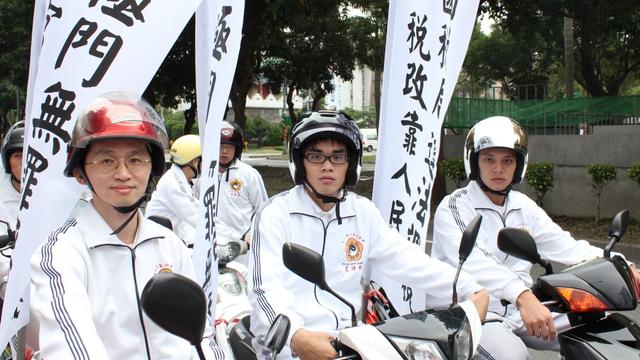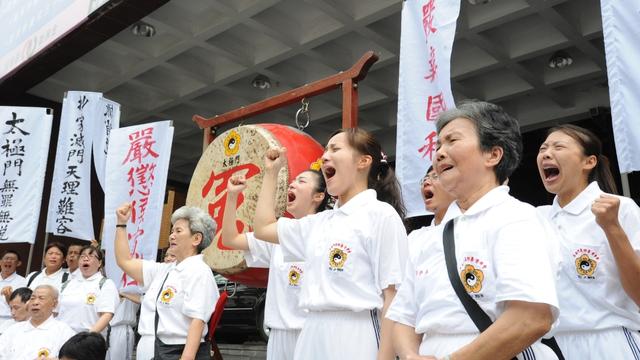Tai Ji Men dizi both relentlessly promote human rights and are victims of their violation in Taiwan.
by Stefania Cerruti*
*Introduction to the webinar “Tai Ji Men: Fighting for Human Rights,” co-organized by CESNUR and Human Rights Without Frontiers on December 10, 2022, Human Rights Day.

December 10, Human Rights Day, is among the most important United Nations days of observance. It is important in my field of disaster studies, it is important for world peace, and it is important for Tai Ji Men.
Disaster studies scholars have observed that violations of human rights increase during and after disasters. So does, happily, solidarity, but unfortunately war and natural calamities are also opportunities for those who want to profit from corruption, steal, or abuse human beings who are already in distress. Wars, in particular, always come with torture, looting, and rape, as we are seeing in these days in Ukraine. Accordingly, for those who work in the field of preventing disasters and copying with them, human rights are essential.
Human rights are also crucial for world peace. There is no peace without human rights. At the micro level of disasters, evildoers would loot, steal, and try to make money through corruption if the authorities are not strong enough to stop them. At the macro level, it is more likely that rogue states would arbitrarily detain, torture, and kill their own citizens and aggress other countries if they believe that they would not be held accountable under a universal standard of human rights. In this sense, affirming human rights is the best prevention against state-sponsored violence and wars.
Finally, human rights are important for the Tai Ji Men case. Any discussion of human rights should examine the behavior of three social actors: those who promote human rights, those who do not respect human rights, and those who suffer because their human rights are not respected.
I had the pleasure of meeting personally Dr. Hong Tao-Tze, the Shifu (Grand Master) of Tai Ji Men when he received in 2019 the FIRMA Global Peace Award at the Turin International Book Fair, which is the second largest book fair in Europe. Dr. Hong and Tai Ji Men offer a unique contribution to the promotion of human rights, particularly by reminding the world that the root of human rights is conscience. Dr. Hong initiated the movement that led the United Nations to include among its days of observance the International Day of Conscience, April 5, something that was also important for human rights.

Tai Ji Men has also been instrumental in exposing those who violate human rights, in particular through its fight against corruption, both in Taiwan and internationally. Before others, Tai Ji Men had already proclaimed a principle that is now acknowledged by the United Nations, that corruption and the violation of human rights are necessarily connected.
Unfortunately, Tai Ji Men also finds itself in the third role. It is a victim of violations of human rights. A biased prosecutor and corrupt tax officers created and continued the Tai Ji Men case, violating the freedom of religion or belief, the freedom of association, the right not to be arbitrarily arrested, and the taxpayers’ rights, of Dr. Hong, his wife, and his dizi (disciples).

I understand that yesterday, December 9, the Office of Human Rights and Transitional Justice of Taiwan’s Executive Yuan organized a seminar in preparation of Human Rights Day on “International Perspectives on Equality Law and Legislative Prospects.” Seminars and conferences are always useful, but any discourse on human rights in Taiwan cannot ignore the Tai Ji Men case. It is widely discussed internationally, and is now the most famous, or if you prefer infamous, case of disrespect of human rights in Taiwan.
Today, Human Rights Day, we celebrate Dr. Hong and Tai Ji Men as relentless fighters for human rights. We ask that those who do not respect human rights should be held accountable. We express our solidarity to Tai Ji Men as victim of human rights violations, and we call on Taiwan’s authorities to solve the case.
Source: Bitter Winter

